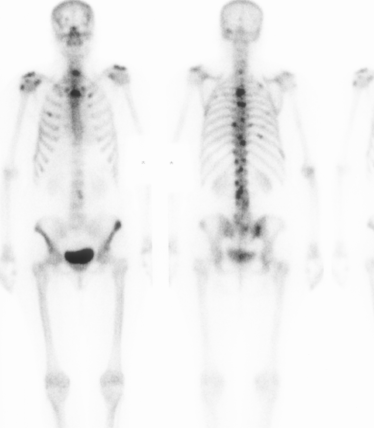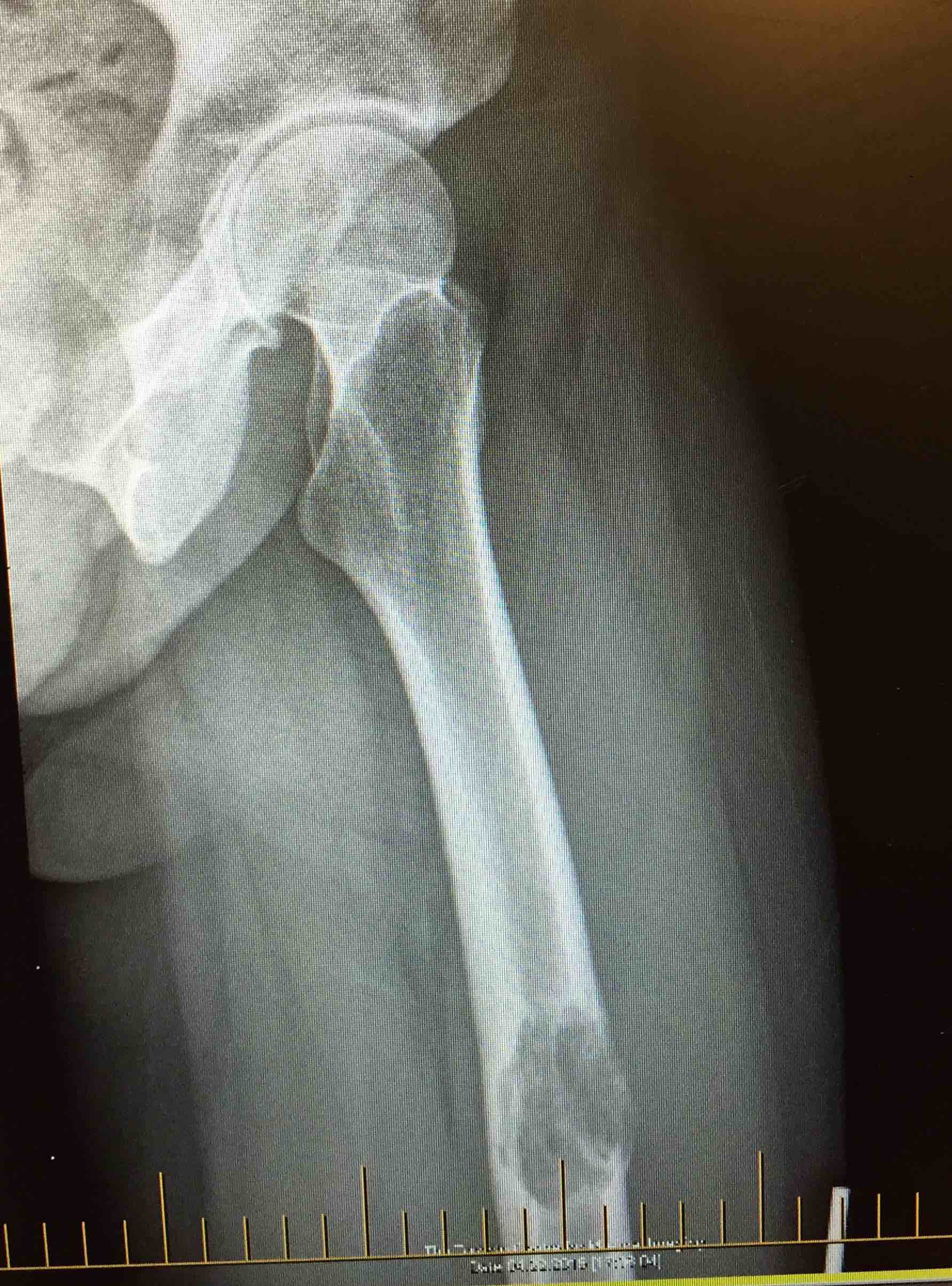
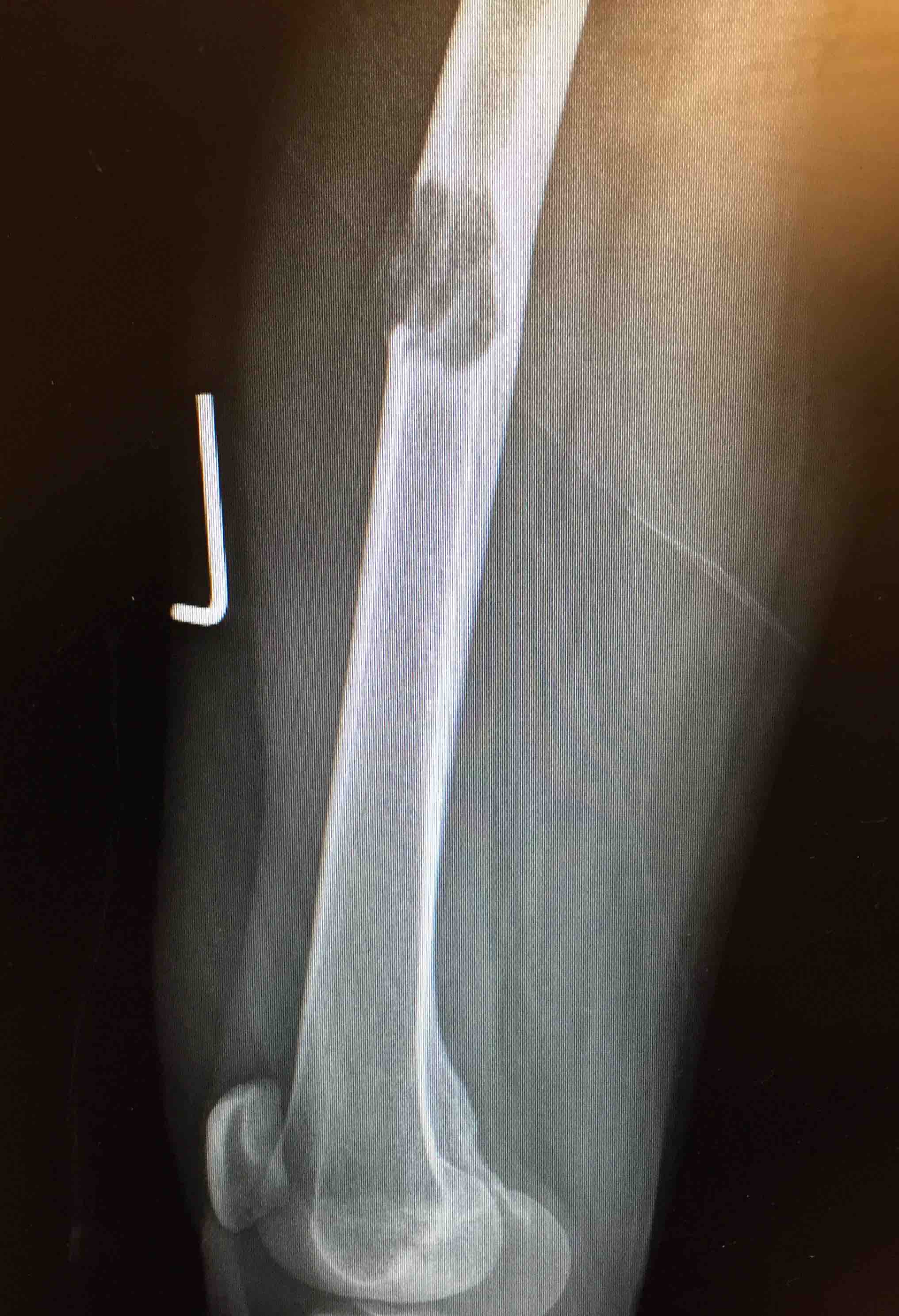
Incidence
Metastasis most common malignancy of bone
- bone is 3rd most common site for metastasis after liver and lung
- proximal femur most common location
Any cancer can metastasize to bone - prostate and breast most common
Skeletal metastasis can be first presentation in up to 25% of patients
Clinical presentations
1. Metastasis with known primary / commonest
2. Metastasis with unknown primary / rare (3 - 4%)
3. Pathological fracture
Cancers with bony metastasis (Hexagon)
80% PBL (Prostate, Breast, Lung)
20% Kidney, Thyroid & GI + Melanoma / Lymphoma
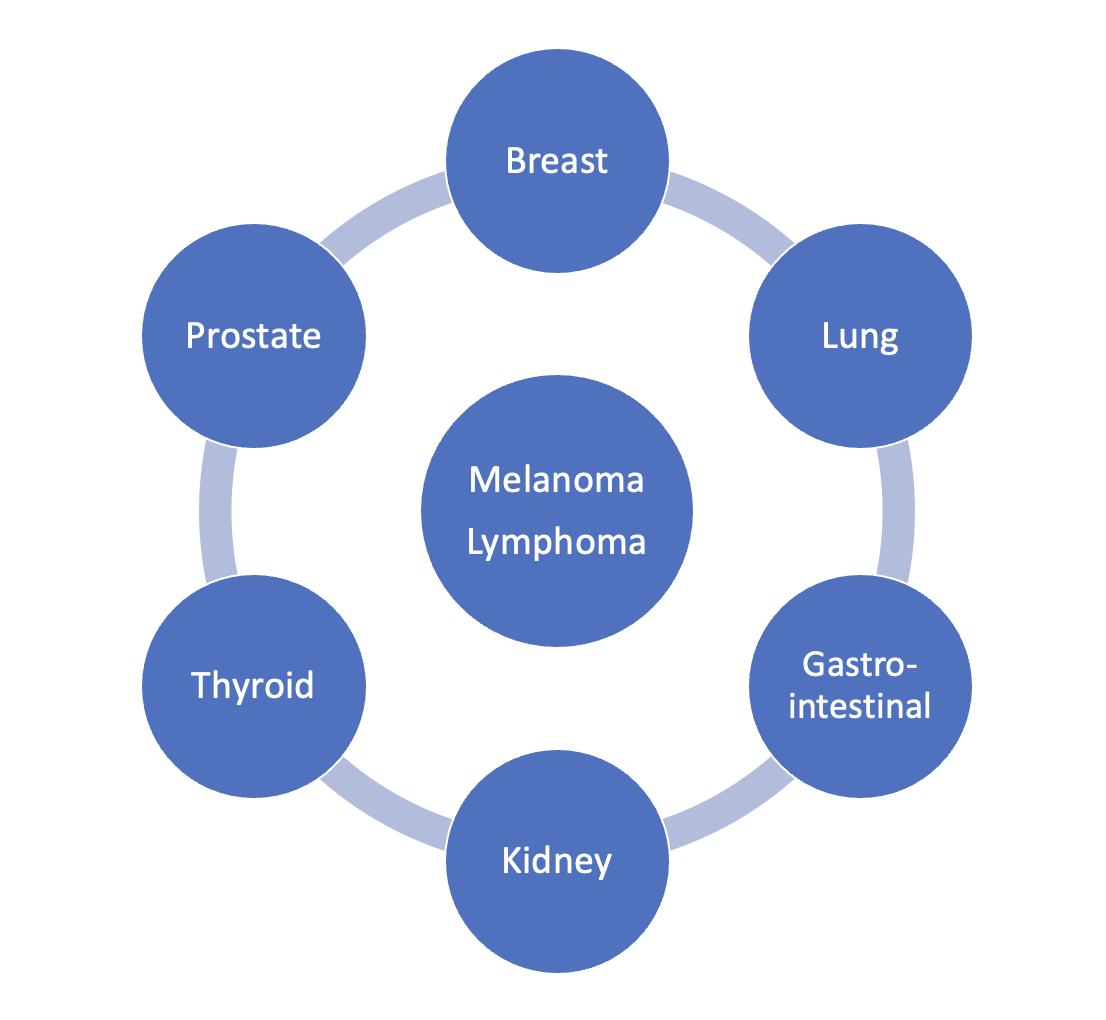
Location of metastasis
80% axial - spine
20% appendicular - proximal femur
Mechanism of dissemination
1. Haematogenous
2. Lymphatic - renal cell, osteosarcoma
3. Direct - rare
4. Iatrogenic
Bone Response to Tumour
Lytic / Sclerotic / Mixed
1. Purely lytic - lung / kidney / breast / thyroid / GI
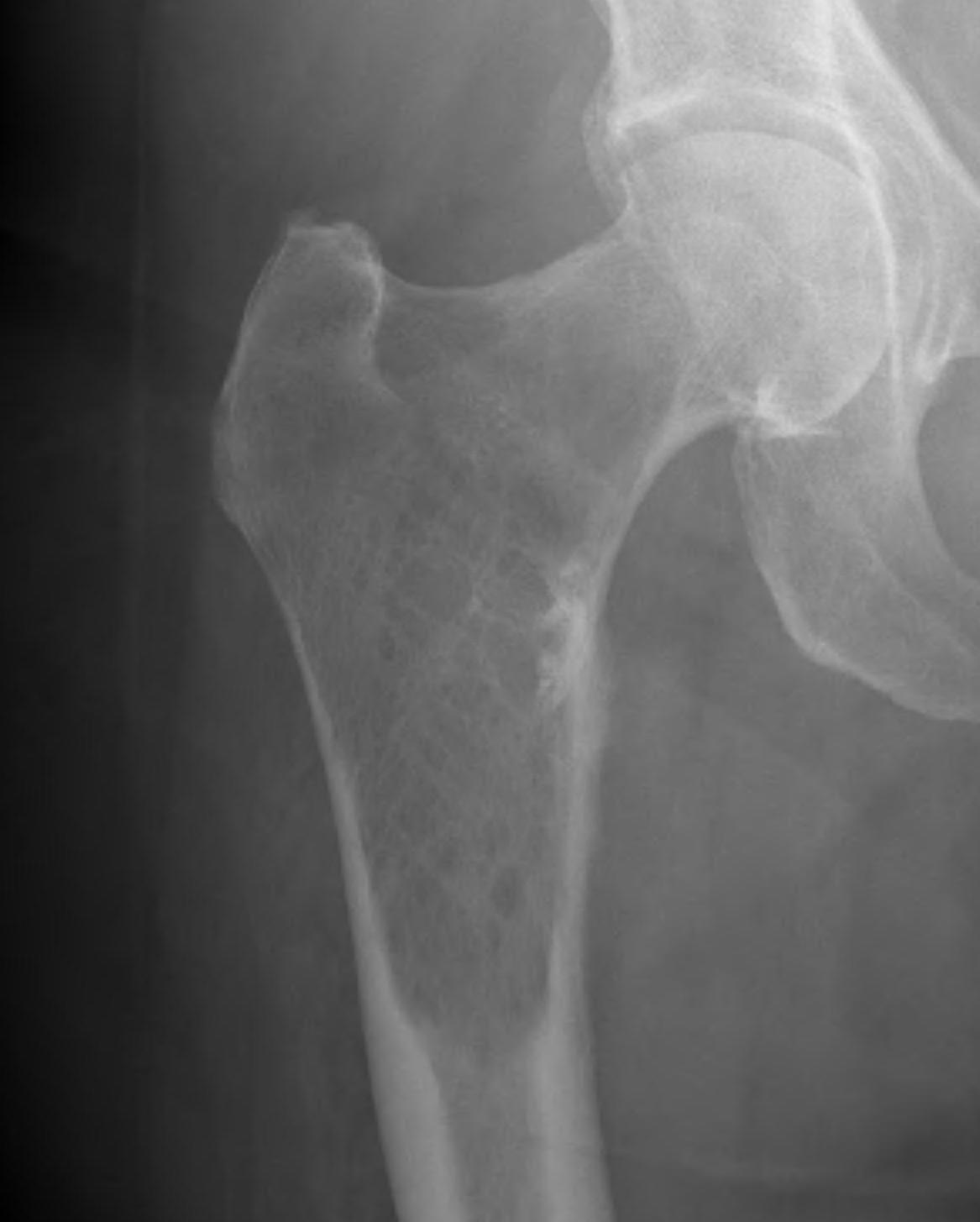
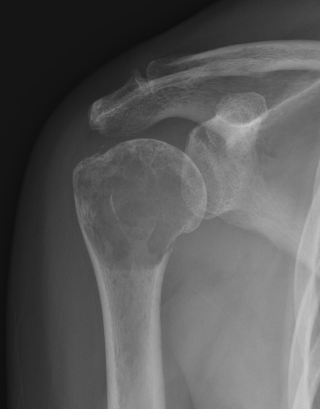
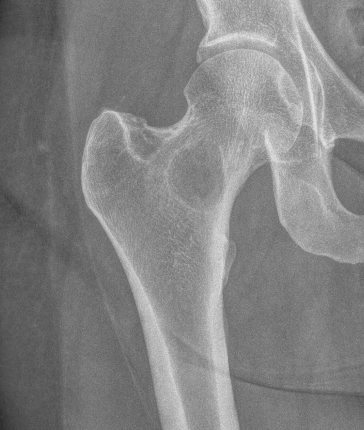
2. Sclerotic - prostate / breast / bladder / GI / lung

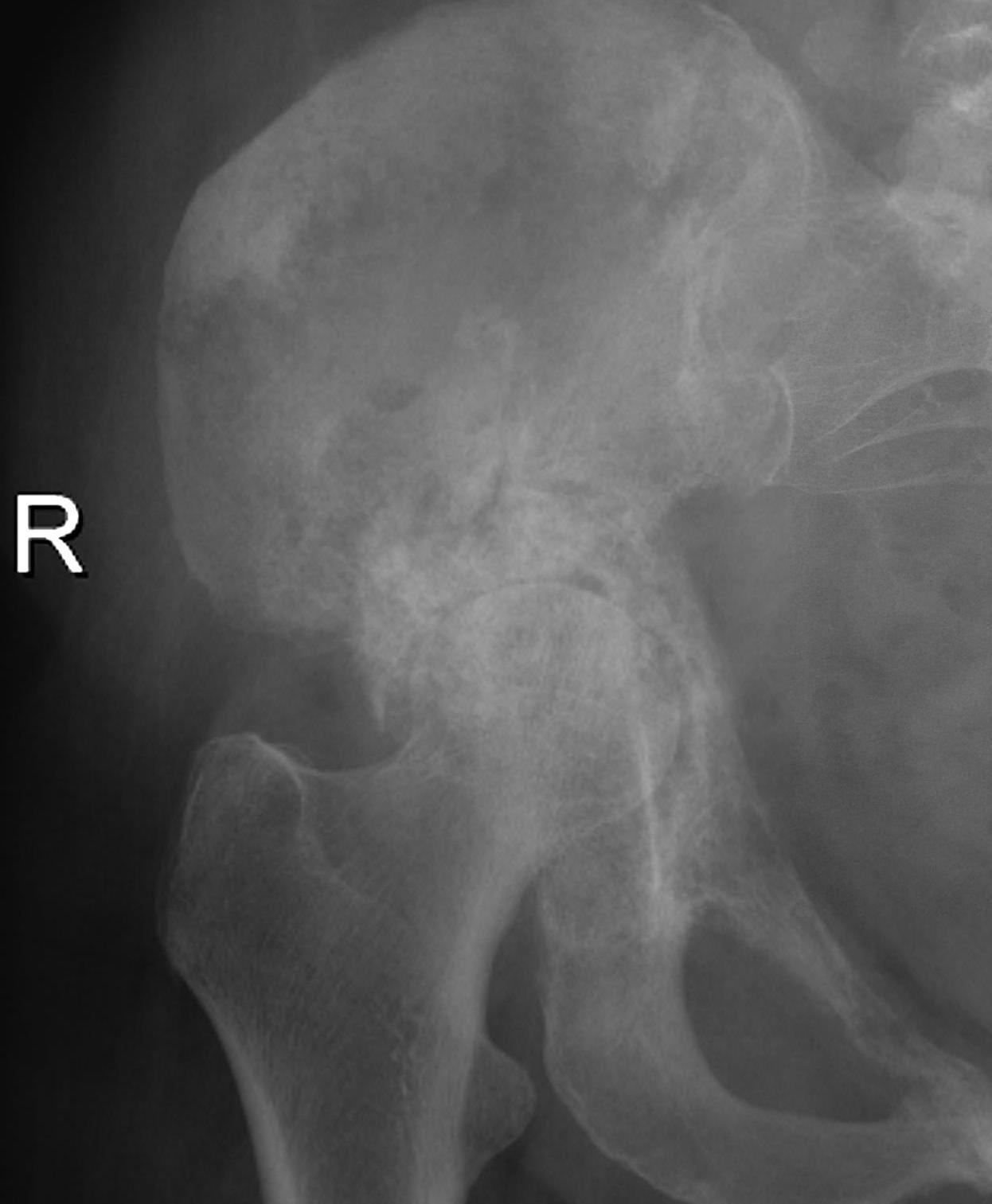
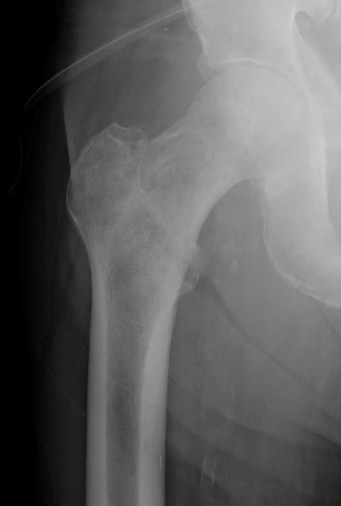
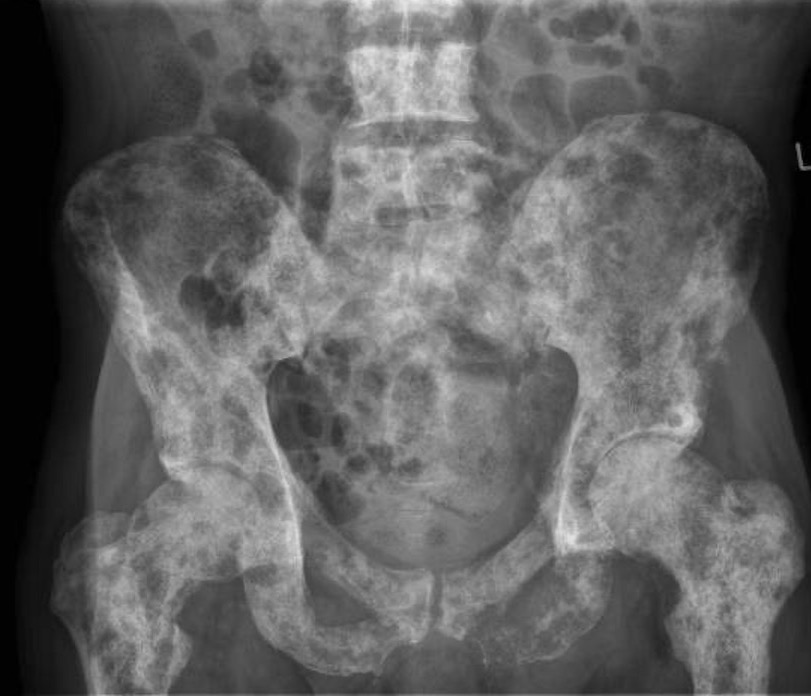
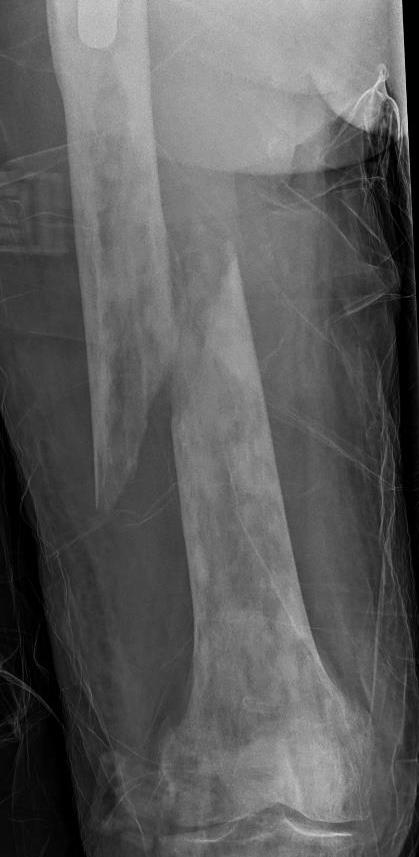
3. Mixed - breast / prostate / lung / bladder
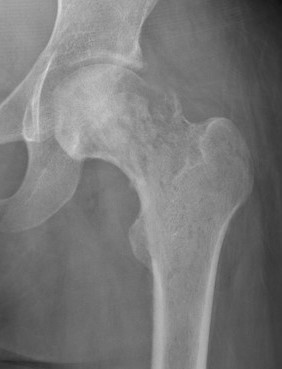
Bone Destruction
Osteolytic lesions (breast)
- osteoclastogenesis
- tumour production of interleukin (IL)-1, IL-6, TNF, MIP1α, RANK ligand, PTHrP
Osteoblastic lesions (prostate)
- tumour cell-mediated activation of osteoblasts
- through production of TGF-β and bone morphogenic protein
Pain
75% of metastasis
- nerve irritation by direct invasion of tissue
- periosteal stretching
- fractures
X-ray
Need > 50% bone loss to see
Remember to xray entire bone
- especially NOF fracture
- need to bypass all lesions
Bone Scan
Most sensitive screening tool
False negative 10% - Myeloma / Melanoma / Renal cell carcinoma
